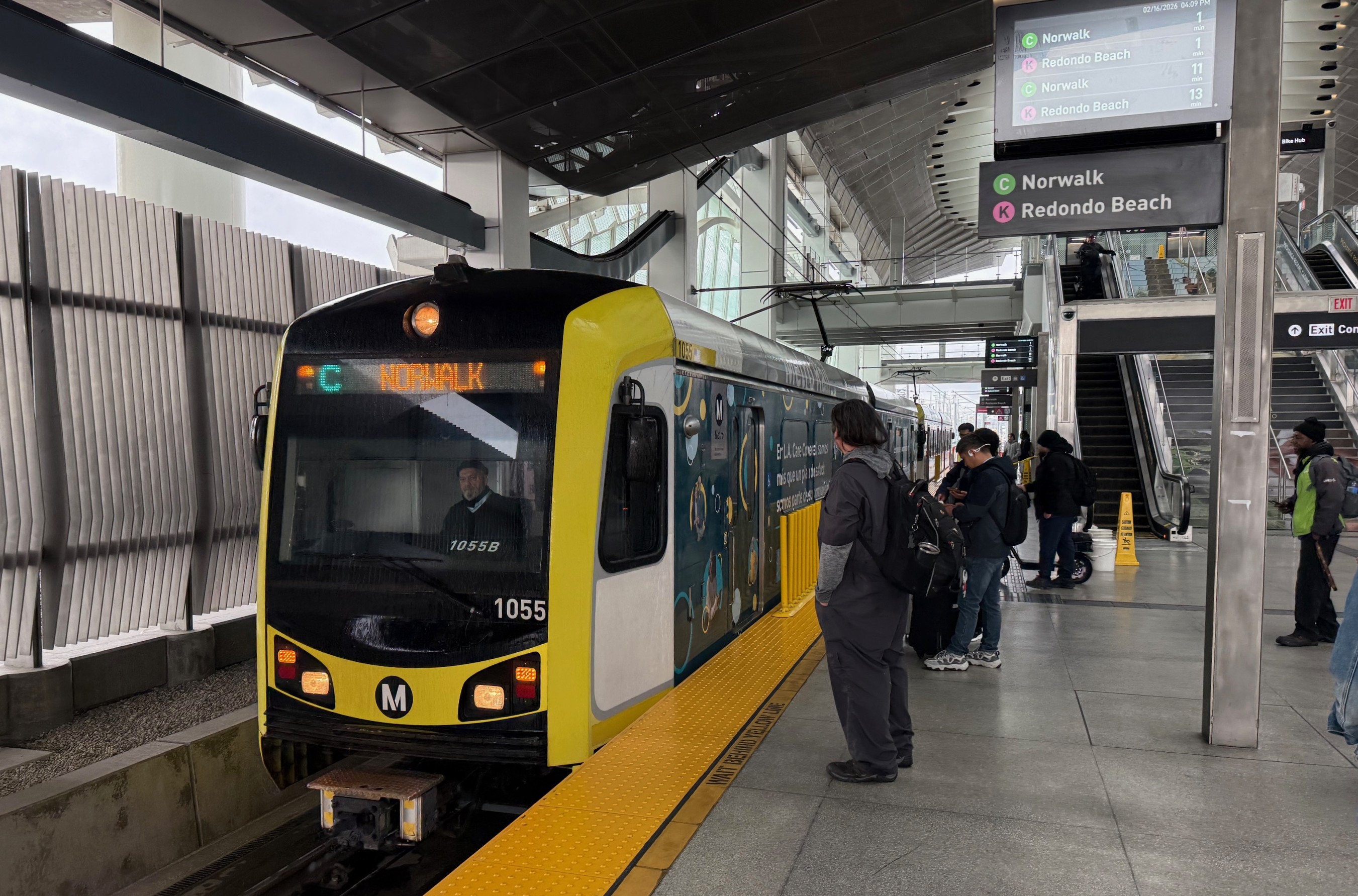If nothing else, the current round of federal transportation legislating should end the myth that highways are a uniquely self-sufficient form of infrastructure paid for by "user fees," a.k.a. gas taxes and tolls.
With all the general tax revenue that goes toward roads in America, car infrastructure has benefited from hefty subsidies for many years. But at the federal level, the road gang could always argue that the gas tax paid for the Highway Trust Fund. Not anymore.
The gas tax has stagnated at the same rate since 1993, and the Highway Trust Fund has been bailed out so many times over the last decade, it's hard to keep count. A long-term transportation bill was supposed to fix that. Instead, the six-year bill on its way to passage right now in Washington may finally bury the idea that American highways are wholly paid for by the gas tax.
Despite gas prices plummeting to barely more than $2 a gallon, and despite pressure from interest groups on both the right and left, Congress has never seriously considered raising the gas tax to cover the cost of the federal transportation program. That means roads are in line for way more subsidies.
It's unclear exactly how much subsidy the final bill will contain, since the House and Senate bills have yet to be reconciled. But it looks like about $85 billion will be needed to fill the gap over six years. Part of that figures to come from raiding the Federal Reserve and part from a gimmicky one-shot tax on "repatriated" overseas corporate profits. Either way, we're not talking about "user fees."
In the House bill, the combined subsidy would account for a quarter of the $322 billion in transportation spending over six years. The subsidy will only get larger in future bills as the purchasing power of the gas tax continues to erode, unless Congress can overcome its aversion to asking drivers to pay for roads.
Federal rules even make it harder for states to collect their own "user fees" for roads. It remains illegal for states to toll existing interstate freeways. Only new highways can use tolls as a financing mechanism.
"Congress continues to shift the burden of paying for roads from drivers to all Americans," said Tony Dutzik of the Frontier Group, an environmental policy organization, "while failing to reform a system that too often prioritizes highway boondoggles at the expense of investments that can deliver the greatest benefits for all of us."
If there's a silver lining, it's that a federal transportation program freed from the myth of "user fees" might also find it easier to reform the longstanding policy bias for roads, like the formula that sets aside 80 percent of transportation funds for highway programs and 20 percent for transit.
Many of America's peer nations, like Japan, Canada, Australia, the UK, and Germany, have been moving away from the "user fee" model, according to a recent report from the Eno Transportation Center. In those countries drivers still pay fees, but they go to the general treasury, and transportation investment is determined by other factors, like which projects are worth supporting and what they will ultimately achieve.
The problem is, Congress's debate about how to pay for infrastructure doesn't inspire confidence in its ability to set spending priorities. If legislators can't muster the will to raise the gas tax a mere 10 cents, it's hard to envision the day they'll stop pandering to voters who think more roads will solve their transportation problems.






